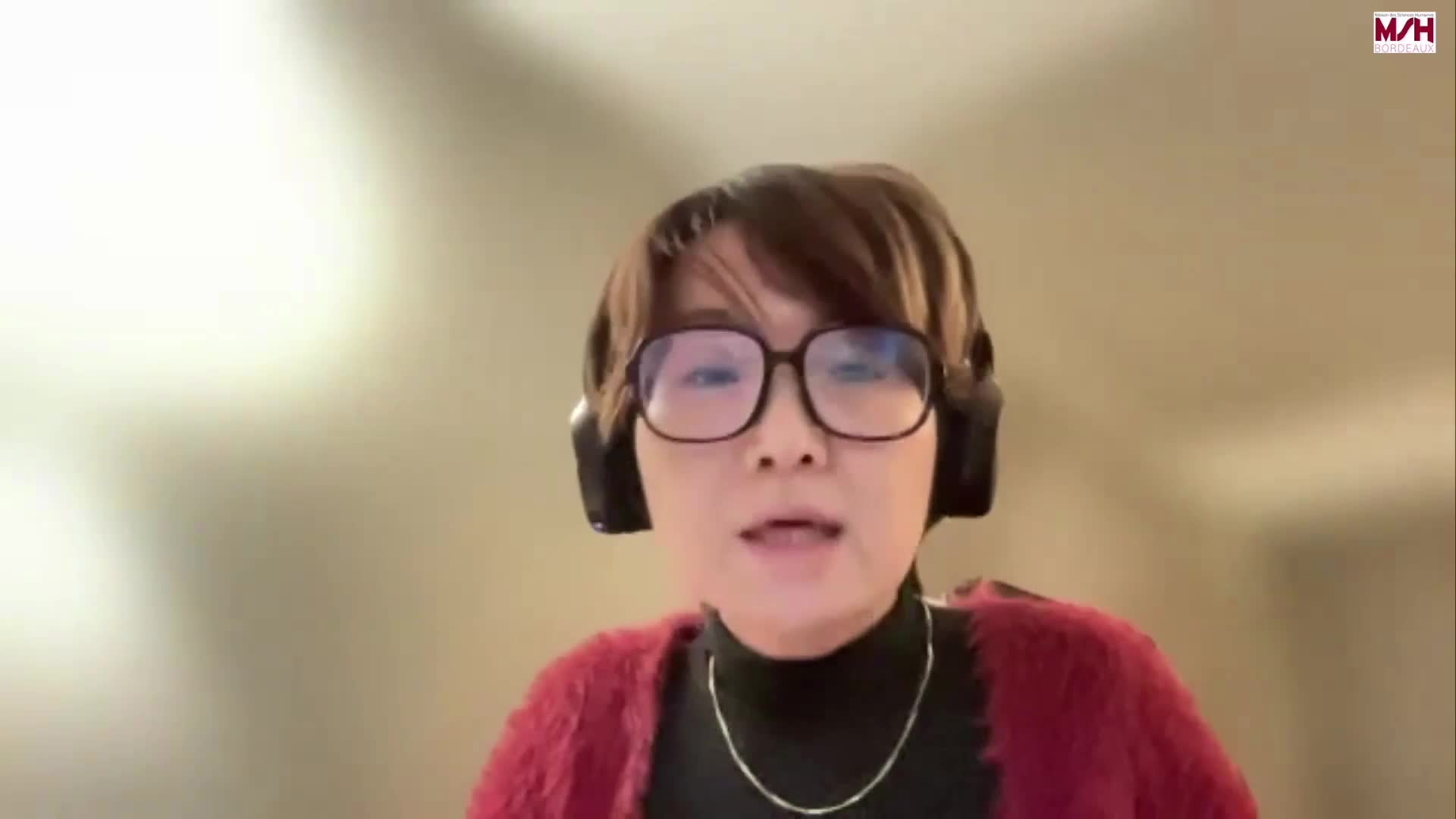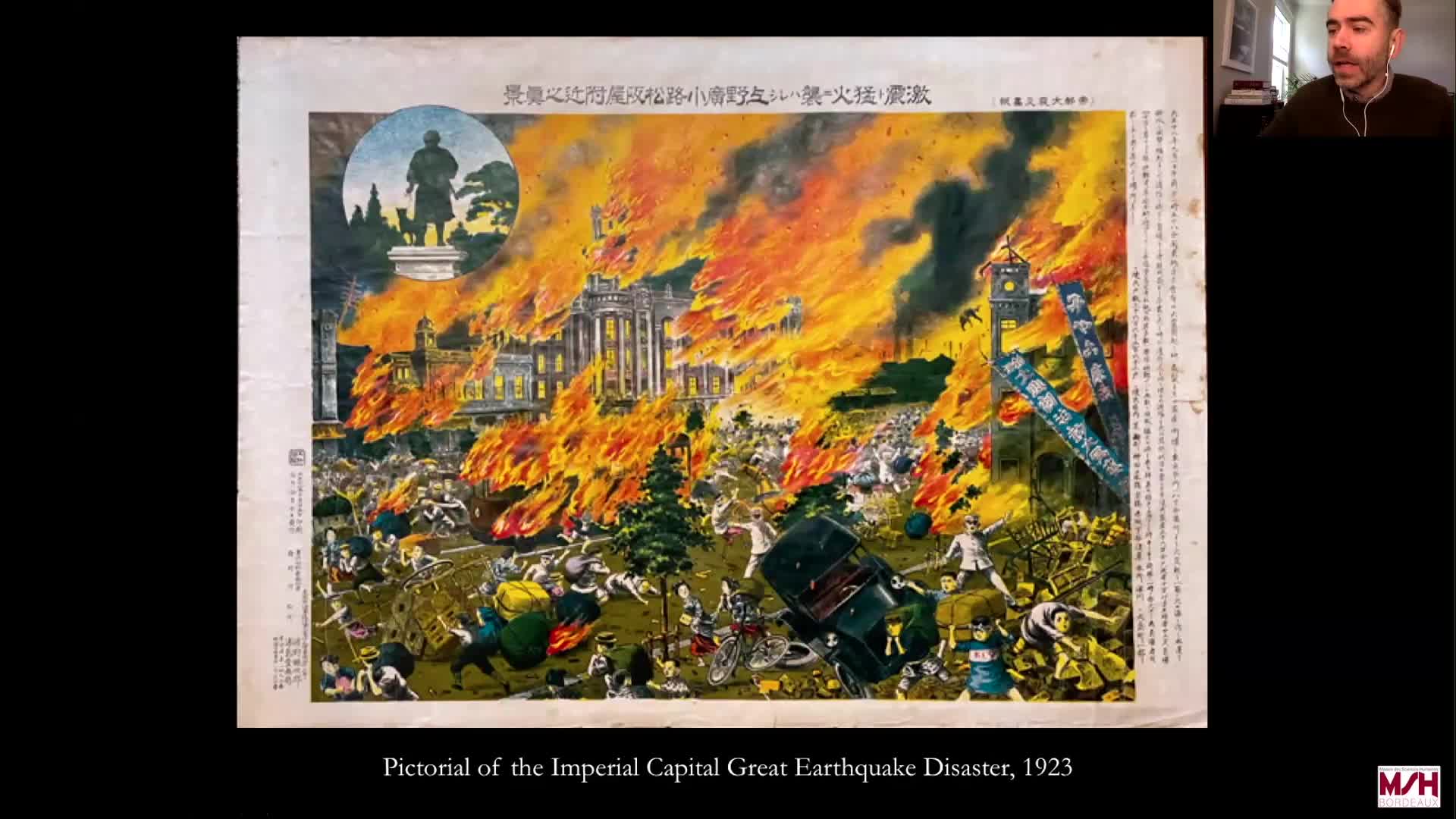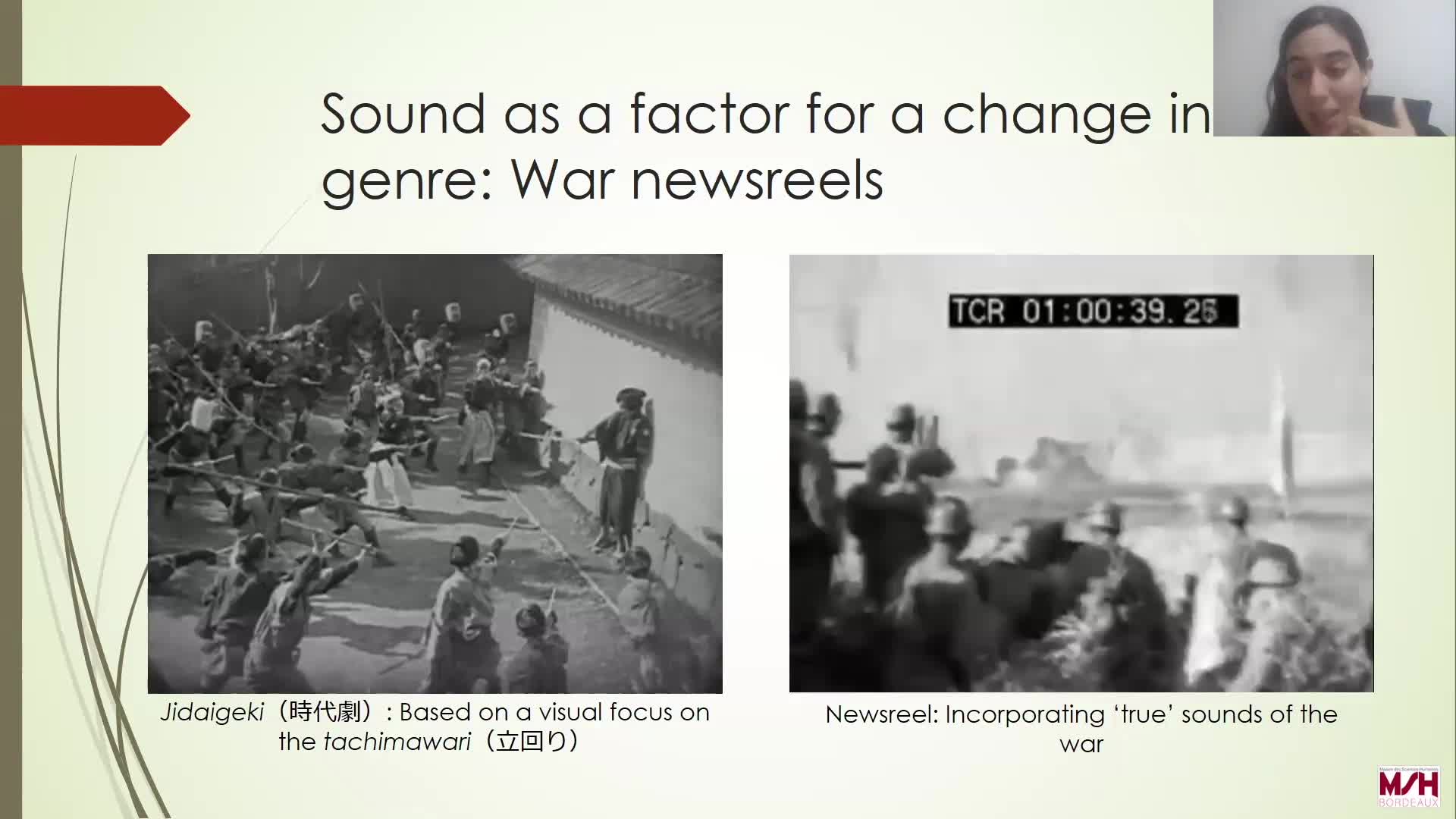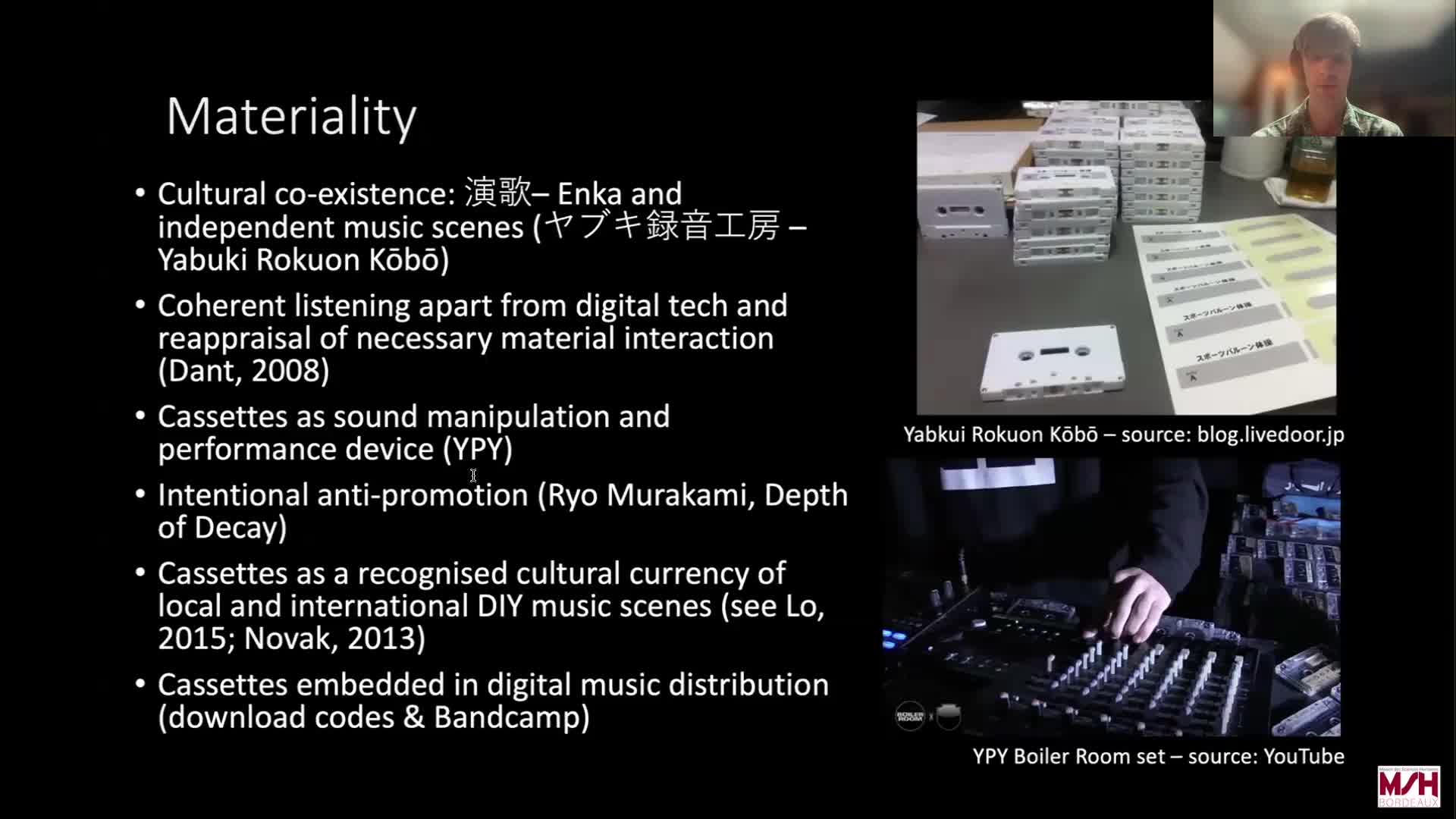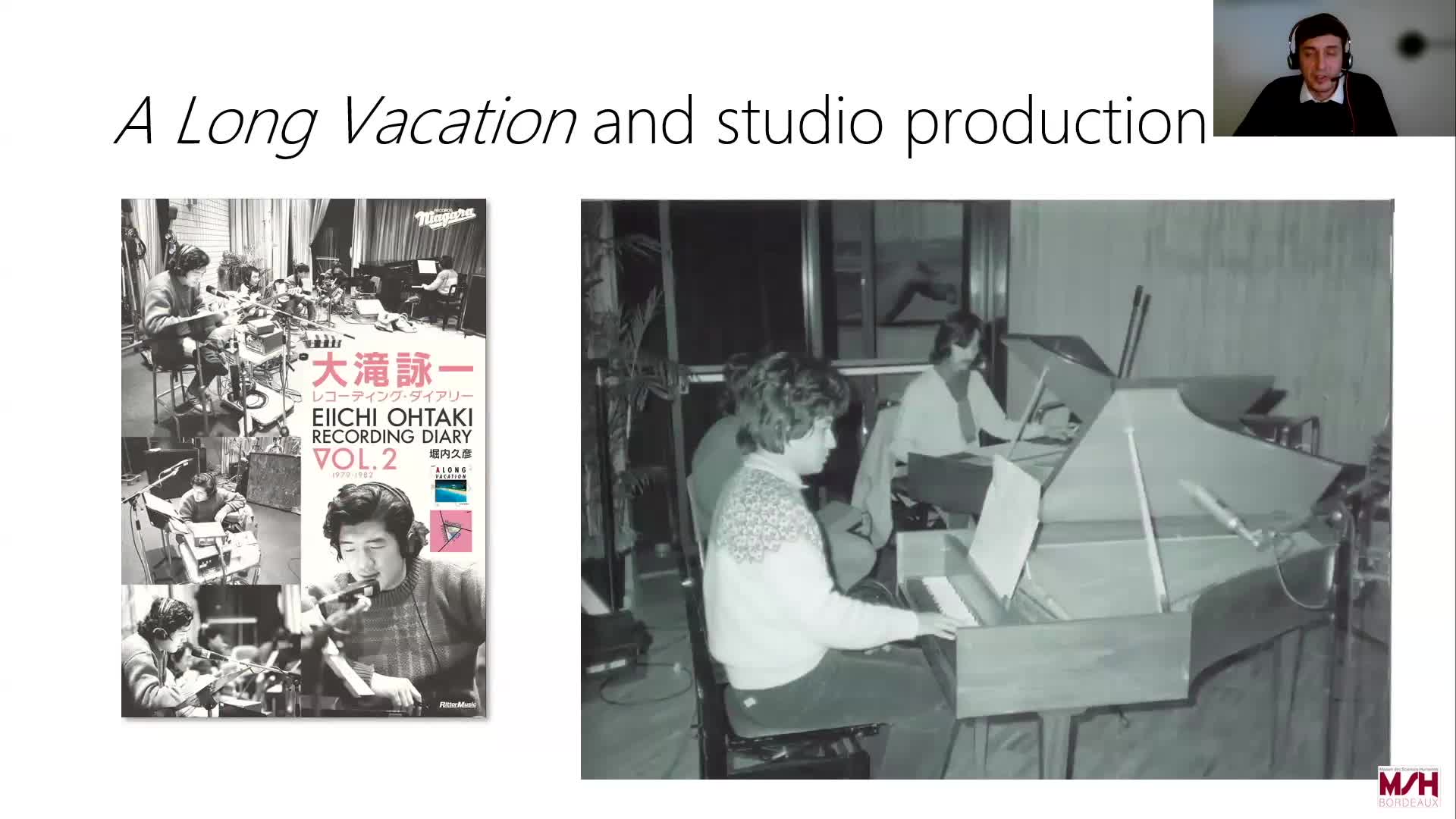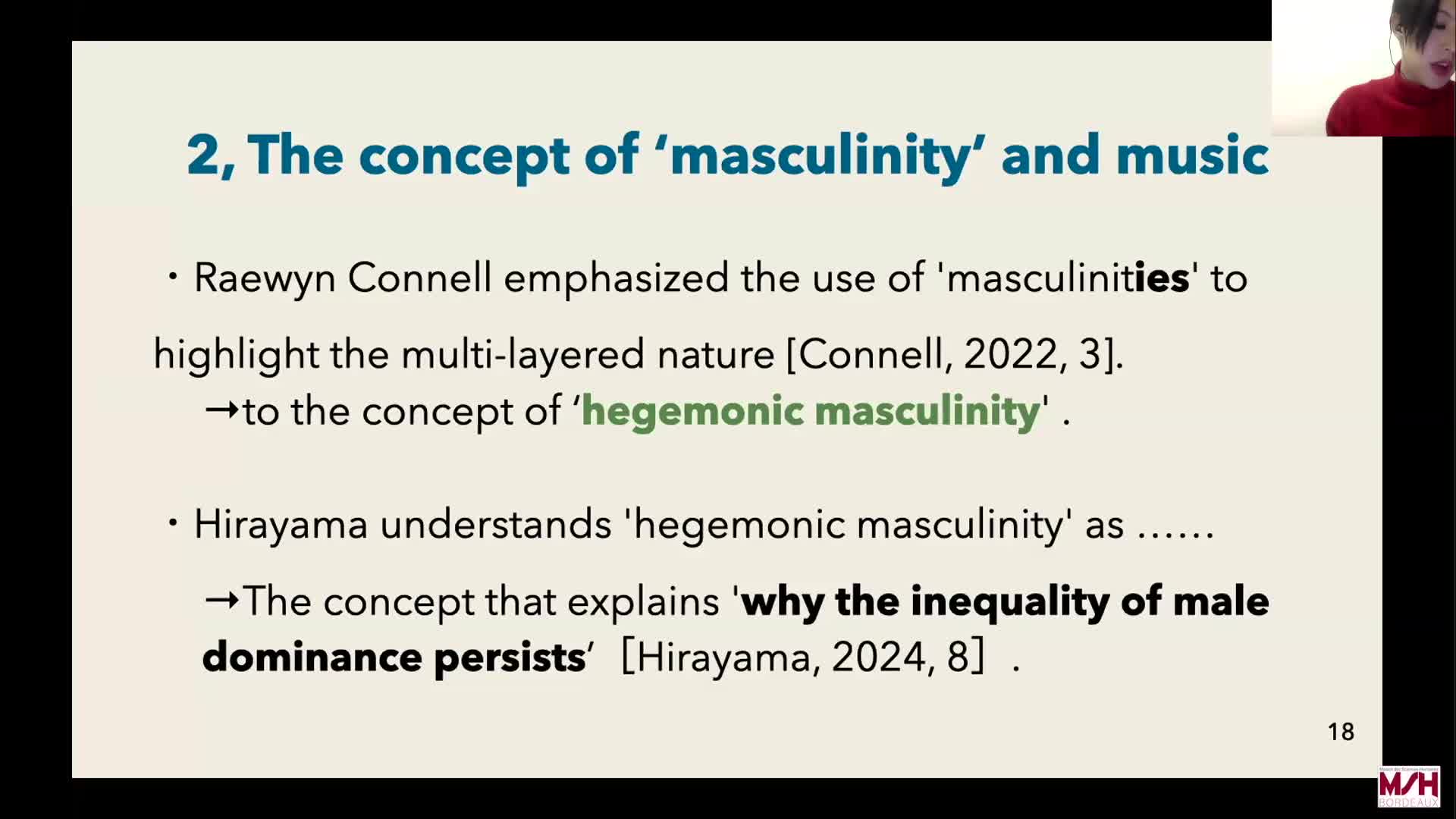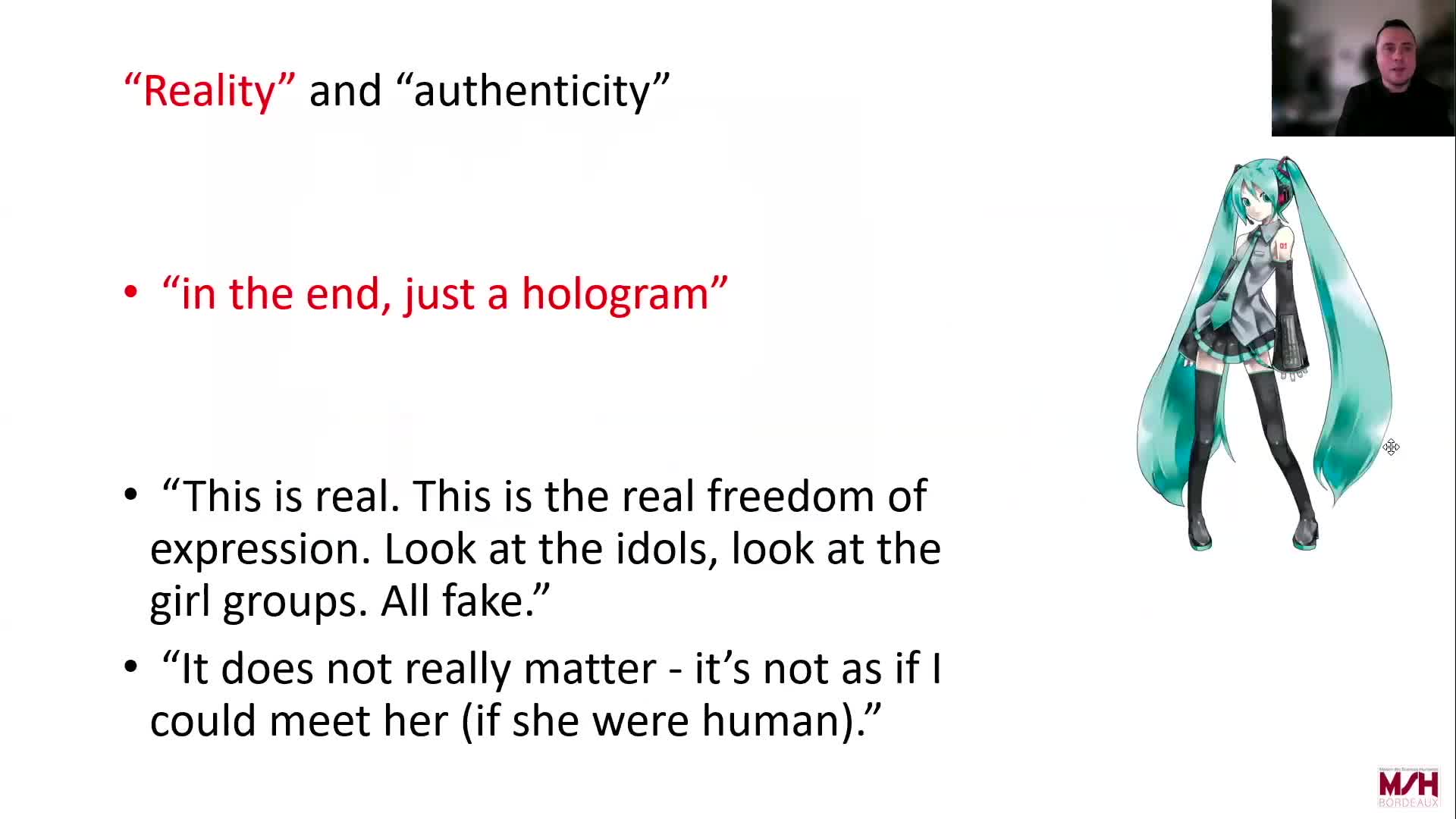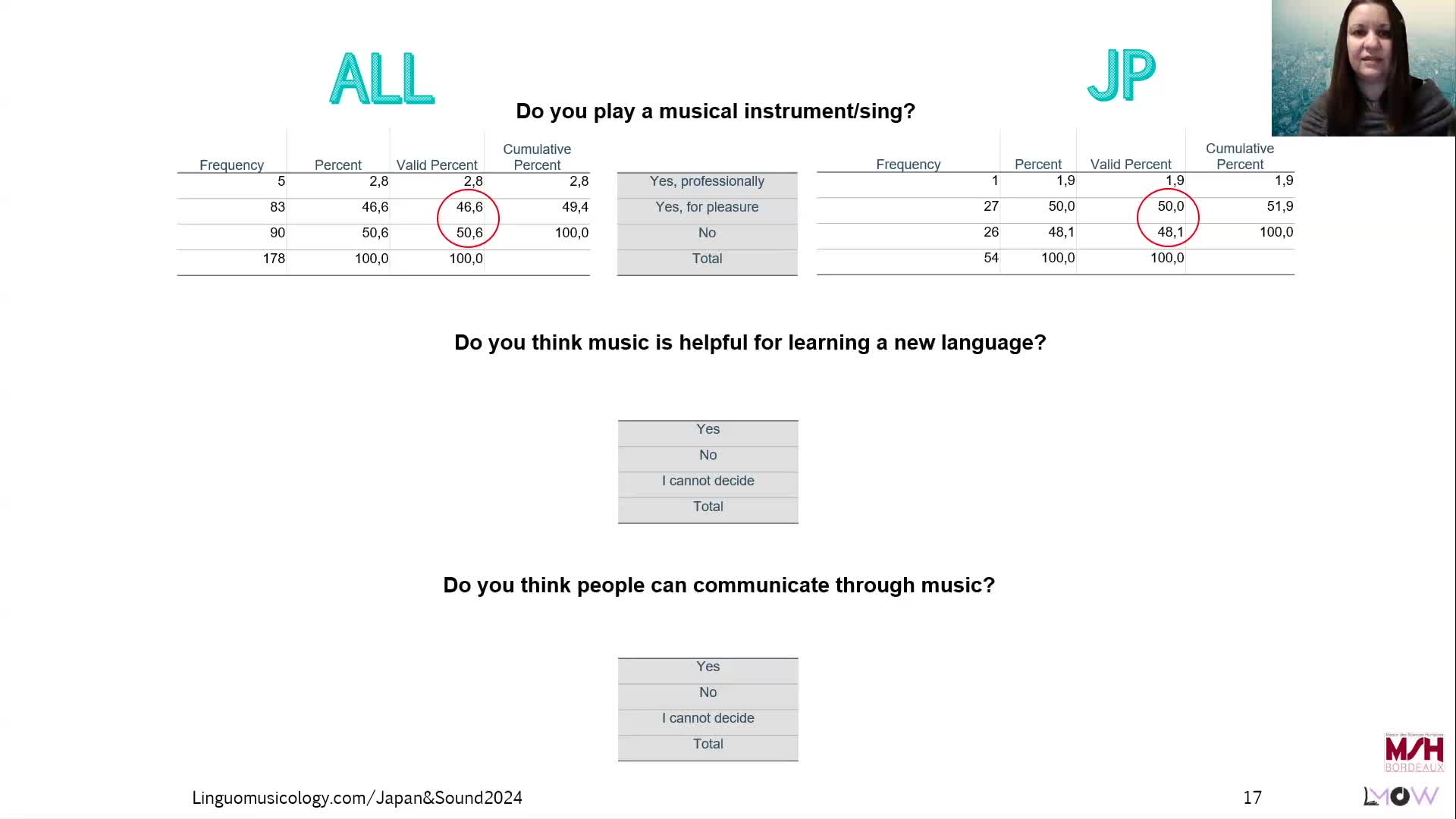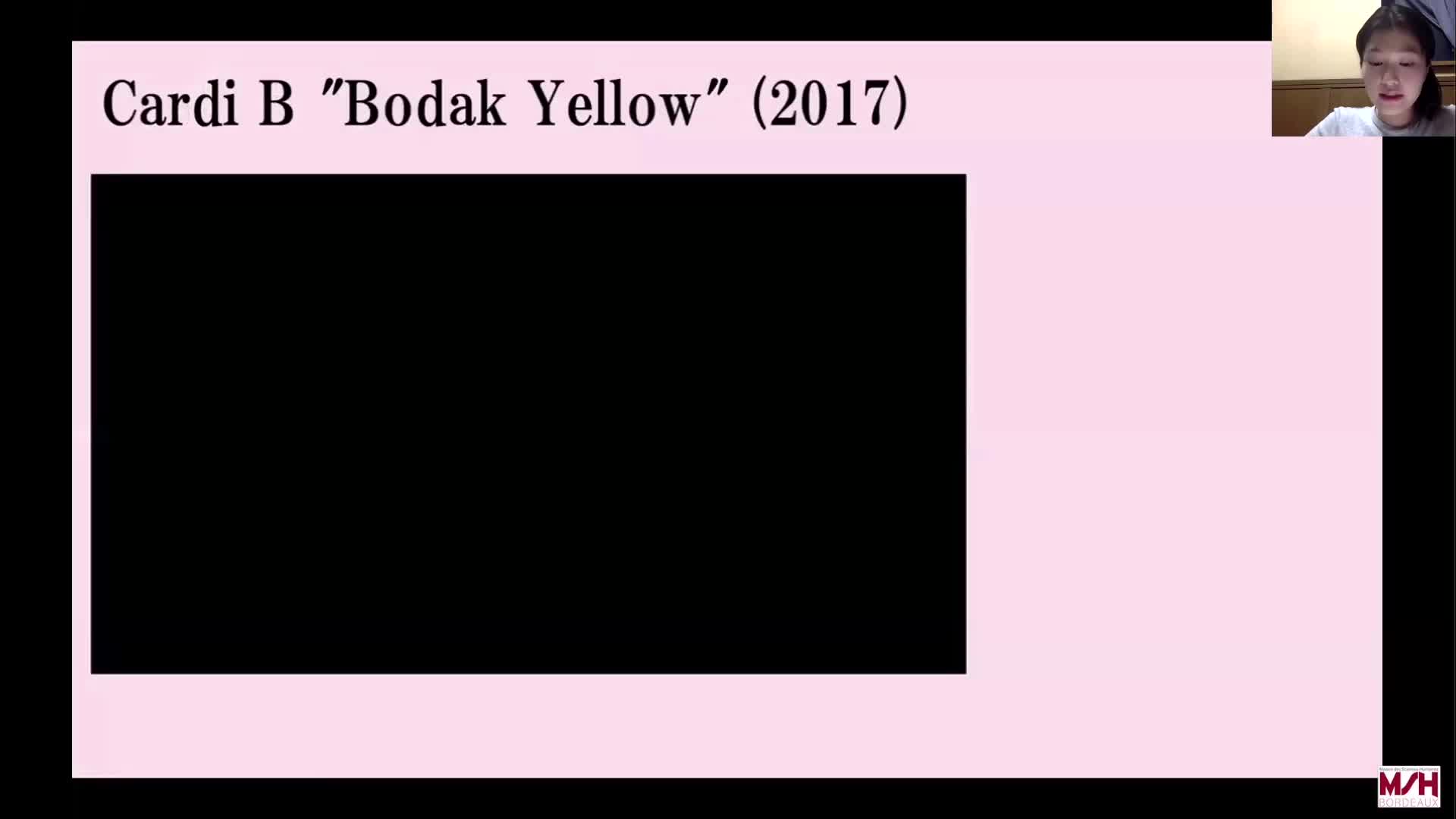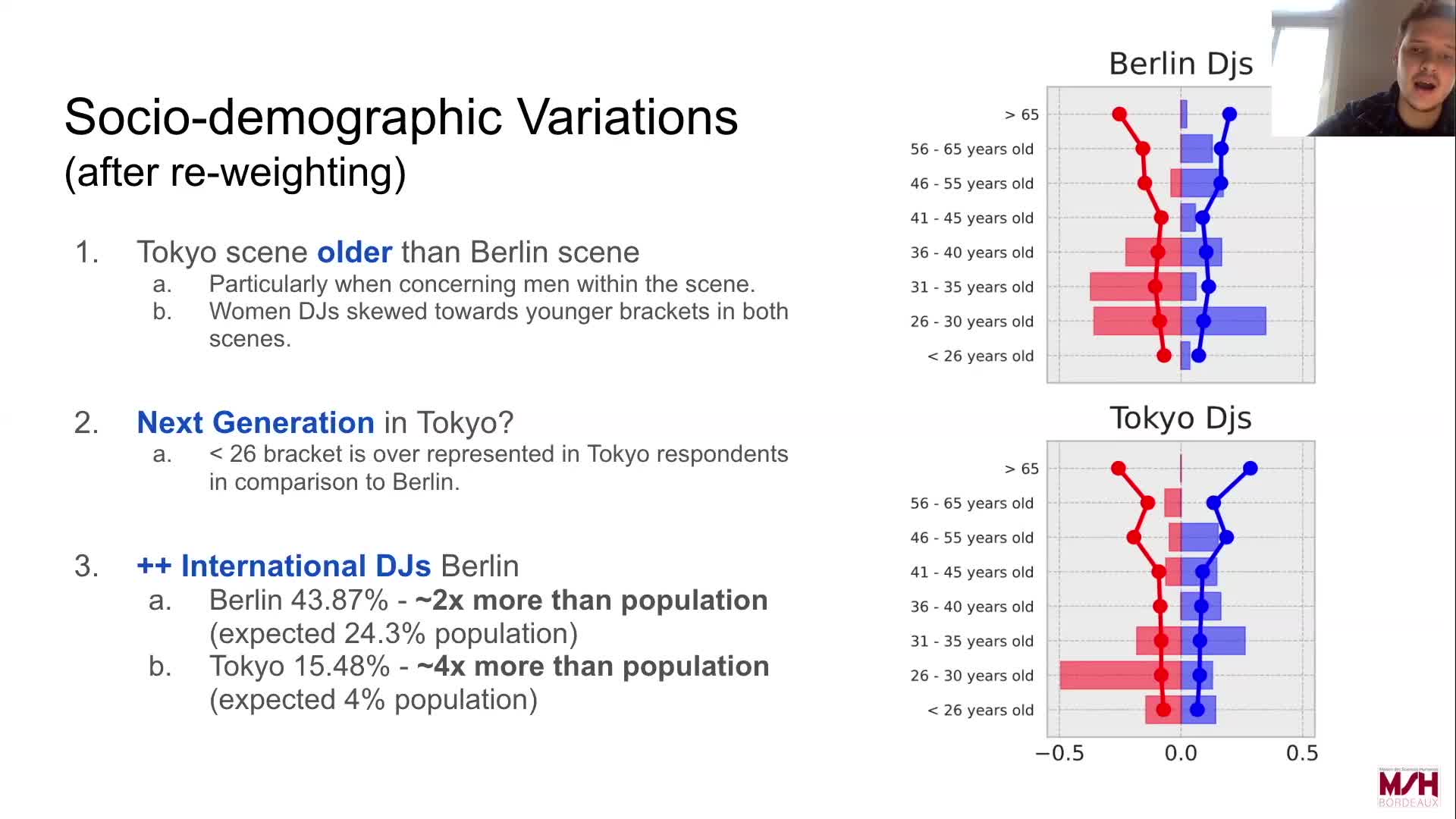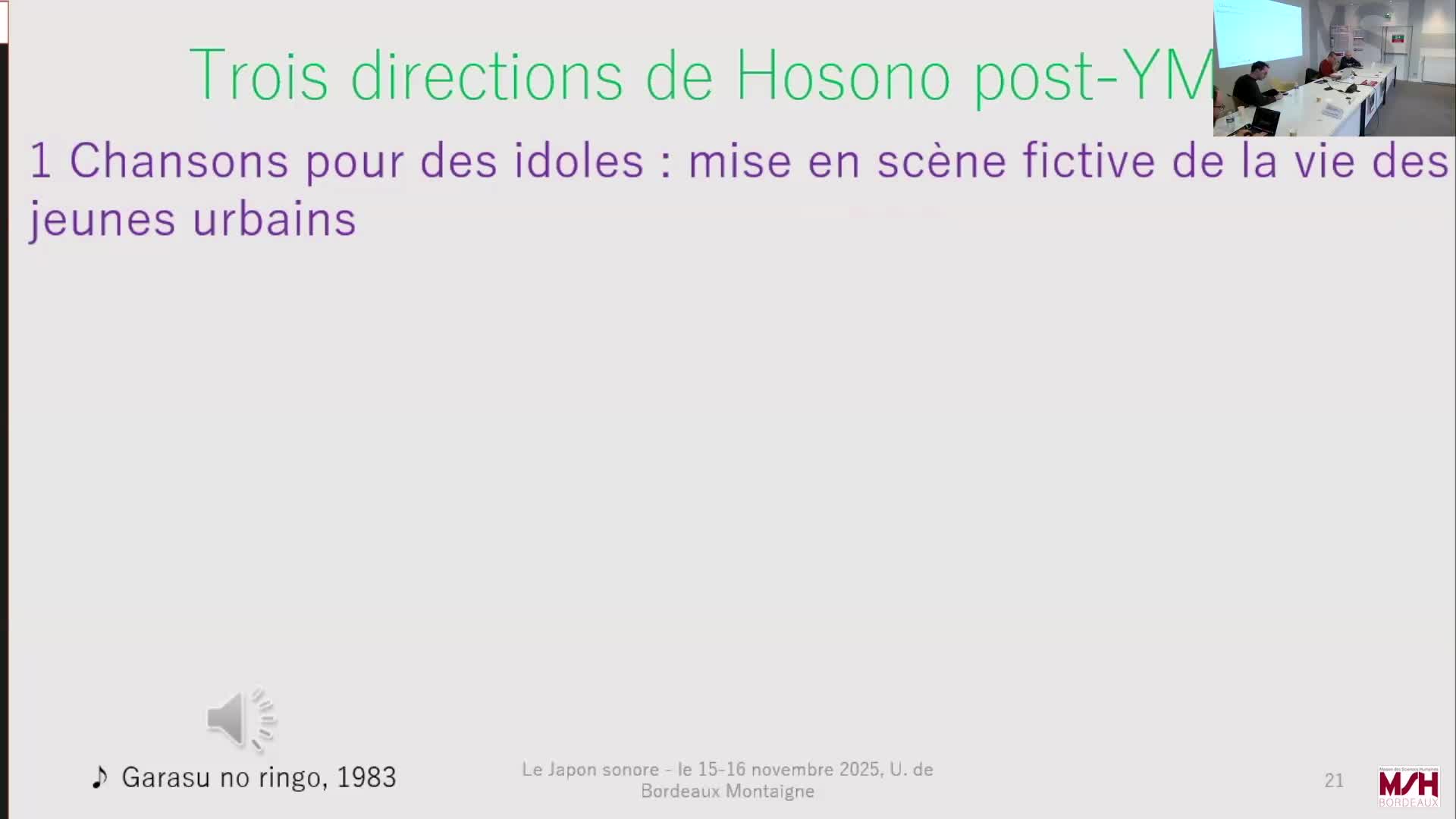Notice
"Did anyone hear what I said?": Acting through sound in Higuchi Ichiyō’s writing
- document 1 document 2 document 3
- niveau 1 niveau 2 niveau 3
Descriptif
Gala Maria Follaco, "Did anyone hear what I said?": Acting through sound in Higuchi Ichiyō’s writing.
Panel 8 – Language and voice
My paper will examine aural representation in two short stories by Higuchi Ichiyō (1872-1896), “Yamizakura” (1892) and “Yamiyo” (1894). In these works, the author attaches multiple symbolic meanings to acoustic items such as sound and voices, giving the texts a multilayered structure, which conceals a secondary narrative of inequality, oppression, and a sense of inadequacy beneath the facts told. Endorsing scholarly work on Ichiyō from the last three decades (Seki 1997; Chida 2000; Minemura 2006; Compernolle 2006; Follaco 2020), which has brought her critical posture closer to the centre of research, particularly with regard to the ideology of risshin shusse, I will search within these two short stories, understudied thus far, for traces of her representation of the feminine and the poor as forgotten categories within the context of that powerful discourse on progress and social advancement. I will draw upon the ideas of major theorists of sound and voice in literature, primarily Mikhail Bakhtin and Adriana Cavarero, to show how Ichiyō identifies voice with agency, and the silencing of women and the poor, alongside their objectification through speech, the supreme form of repression.
Colloque "Le Japon sonore : modernité, constructions sociales, rapports de force / Japan and sound: modernity, social constructs and power relations" 14-16 novembre 2024, organisé par Jeremy Corral (UMRU 24140 D2IA, Université Bordeaux Montaigne) et par Chiharu Chûjô (EA 4186-IETT, Université Jean Moulin Lyon 3).
More informations: https://mshbordeaux.hypotheses.org/10930
Thème
Dans la même collection
-
Clôture du colloque / Closing comments
CorralJeremyChujoChiharuColloque "Le Japon sonore : modernité, constructions sociales, rapports de force / Japan and sound: modernity, social constructs and power relations"
-
The ear is a weapon: Soundscapes of racial violence in Tokyo, 1923
Colloque "Le Japon sonore : modernité, constructions sociales, rapports de force / Japan and sound: modernity, social constructs and power relations"
-
Recorded sound and the development of ideological control: Changes in Japanese cinema since 1931
Colloque "Le Japon sonore : modernité, constructions sociales, rapports de force / Japan and sound: modernity, social constructs and power relations"
-
Tomorrow on cassette: Japan’s tape jams in the new media age
Colloque "Le Japon sonore : modernité, constructions sociales, rapports de force / Japan and sound: modernity, social constructs and power relations"
-
Re-sounding Shōwa: Ōtaki Eiichi’s A Long Vacation and nostalgia for 1980s Japan
Colloque "Le Japon sonore : modernité, constructions sociales, rapports de force / Japan and sound: modernity, social constructs and power relations"
-
Masculinities and femininities of Japanese singer-songwriters
Colloque "Le Japon sonore : modernité, constructions sociales, rapports de force / Japan and sound: modernity, social constructs and power relations"
-
Multivocality and the vocaloid fan canon
Colloque "Le Japon sonore : modernité, constructions sociales, rapports de force / Japan and sound: modernity, social constructs and power relations"
-
The music of words of Japan: The relationship between human language and music
Colloque "Le Japon sonore : modernité, constructions sociales, rapports de force / Japan and sound: modernity, social constructs and power relations"
-
Gyaru and hip-hop: Shaping a sound-based identity
Colloque "Le Japon sonore : modernité, constructions sociales, rapports de force / Japan and sound: modernity, social constructs and power relations"
-
La musique électronique à Tokyo : une scène (définitivement) analogique ?
PoirouxJérémieColloque "Le Japon sonore : modernité, constructions sociales, rapports de force / Japan and sound: modernity, social constructs and power relations"
-
Save the noise: Supportive acts and works in Japanese noise music in the COVID-19 pandemic
Colloque "Le Japon sonore : modernité, constructions sociales, rapports de force / Japan and sound: modernity, social constructs and power relations"
-
Le tournant de Hosono Haruomi vers la musique ambient dans les années 1980-1990 : concept de « kank…
Colloque "Le Japon sonore : modernité, constructions sociales, rapports de force / Japan and sound: modernity, social constructs and power relations"


